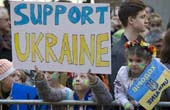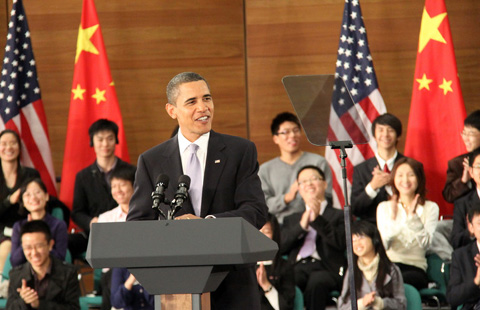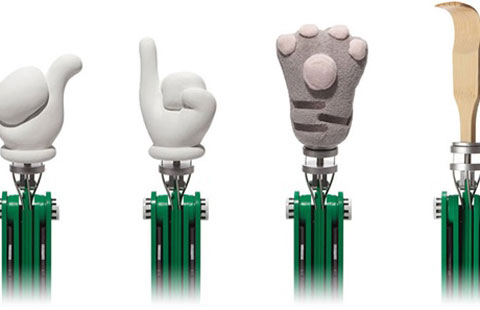Wang tells Venezuela that China seeks deeper cooperation
By Pu Zhendong (chinadaily.com.cn) Updated: 2014-04-23 16:36Beijing and Caracas have agreed to reinforce collaboration in energy, finance and infrastructure within multiple frameworks, such as a cooperation forum between China and Latin America.
In Venezuela on the second stop of his four-nation Latin America trip, Foreign Minister Wang Yi on Monday talked separately with Venezuelan President Nicolas Maduro and with Wang's counterpart, Elias Jaua. After his Venezuelan visit, Wang is scheduled to head to Argentina and Brazil.
Optimistic about Venezuela's future development, Wang said China cherishes the traditional friendship with Venezuela and hopes to deepen cooperation as the two countries celebrate the 40th anniversary of diplomatic ties this year.
"China and Latin America, both in development, share common pursuits, goals and tasks. Strengthening cooperation with Latin America is an important component of China's all-around diplomacy," Wang said.
"The first China-Latin America forum will convene this year. China is willing to seek common development and prosperity with regional countries on this platform," he said.
In January, the second summit of the Community of Latin American and Caribbean States (CELAC), held in Cuba, adopted a special statement on the establishment of a China-CELAC forum as a way to promote overall cooperation between the two.
Wu Changsheng, a researcher of Latin American studies at the China Foundation for International Studies, said, "The forum, considered as the new milestone of China-Latin American relations, will tap further economic and trade potentials between the two sides."
Qi Fengtian, an expert on Latin American studies at the Chinese Academy of Social Sciences, said the forum is a win-win cooperation, given Latin America’s multilateral diplomacy and China’s enthusiasm for dialogue with the region.
"The current priority lies in establishing the mechanism, followed by efforts from both sides to deepen exchanges in various areas," Qi said.
During his talk with Wang, Maduro said greatly fruitful developments have taken place since China and Venezuela established a strategic partnership in 2001 under the administration of then-Venezuelan president Hugo Chavez.
"Venezuela will carry on the bilateral friendship created by leaders of both countries and help advance cooperation between China and other Latin American countries," he said.
Maduro also said that Venezuela hopes to boost its oil exports to China by more than half to a million barrels a day. He added that the two countries are in talks on investments to achieve this goal, AFP reported.
As the world's largest supplier of proven oil reserves, Venezuela exported on average 626,000 barrels of oil to China daily last year.
In September, during Maduro's trip to China, the two sides signed 12 cooperation agreements on energy, education, agriculture and construction, including the establishment of a mixed company to develop Venezuela's Junin 1 oil field. The field is expected to produce 200,000 barrels of crude oil a day.
Wang also expressed concerns about the tensions inside Venezuela, where at least 41 people have been killed since a wave of demonstrations against Maduro's government broke out in early February, AFP said.
"As friends, we pay close attention to the situation inside Venezuela. We trust in the ability and intelligence of the Venezuelan people to settle independently and on their own, the current problems," Wang said.
Qi said China is confident that the situation in Caracas is under control, adding that stability in Venezuela is crucial to the successful implementation of the signed agreement.
"China will support and expand cooperation with the Maduro administration while maintaining cautious communication with the opposition, in an effort to steer the situation toward favorable stability," Qi said.
Wang arrived in Caracas from his first stop in the region, Cuba, where he met with Cuban leader Raul Castro and held talks with his counterpart Bruno Rodriguez.
Wang urged the two countries to translate the strength of high-level political relationship into concrete results of mutually beneficial cooperation and to further promote exchanges on their respective experience in governance.
He also called for enhanced bilateral cooperation in such key areas as trade, investment, agriculture, infrastructure, energy and mining, saying the two sides need to foster new growth points in cooperation in tourism, renewable resources and bio-technology.
Xinhua and AFP contributed to this story.










